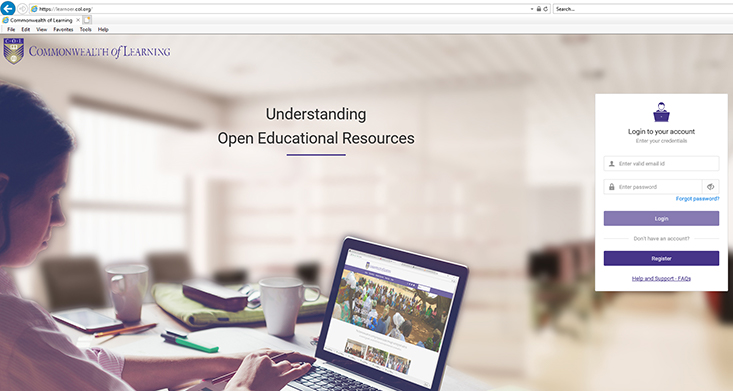
COL is the first intergovernmental organisation in the world to have created a policy for open educational resources (OER) in 2011. This came out of COL’s focus on increasing access to quality learning resources as envisioned during the establishment of COL. In fact, COL was already sharing educational materials well before the term OER was coined in 2002 at a UNESCO meeting. Through COL’s work with partner institutions around the Commonwealth, the organisation realised early on that developing appropriate policy and capacity are essential to promoting the creation and development of OER. In 2011, COL, in collaboration with UNESCO, developed a Basic Guide to OER for demystifying the concept of OER. In 2012, COL also organised the First World OER Congress with UNESCO, and with support from the Hewlett Foundation, that led to the OER Paris declaration. In addition to encouraging the open licensing of educational materials produced with public funds, the declaration identified the need for supporting “capacity building for the sustainable development of quality learning materials.”
Recognising that capacity building of OER is key, and that face-to-face training in brick-and-mortar institutions would take time to undertake, COL developed an online course on OER that would help anyone to learn online at his/her own pace and time, and quickly understand the basics of OER. This course was offered as a Moodle course and served over 20,000 users by June 2018. Following the Second World OER Congress in 2017 and the Ljubljana OER Action Plan 2017, COL revised the course and offered the same on an independent platform (LearnOER) using open technologies and tools.
In less than one year, the course attracted over 4,000 registrations from 64 countries around the world. As of June 2019, over 1,400 participants have successfully completed the course. An evaluation of the course indicated very high satisfaction amongst those who completed and received a certification. The per student cost of offering the training to successful participants was calculated to be CAD $31.00, while the return on investment was 254 percent. Participants also stated that the course empowered them with knowledge and skills on OER (58 percent); is valuable to the present task they do (73 percent); improved the quality of their OER work (49 percent); and improved their efficiency (42 percent). Overall benefits to the participants were calculated at 212 percent of the COL investment on the course.
This short course on OER proved how online courses could increase access and improve quality of training at a low cost.
Report: Evaluation of LearnOER


